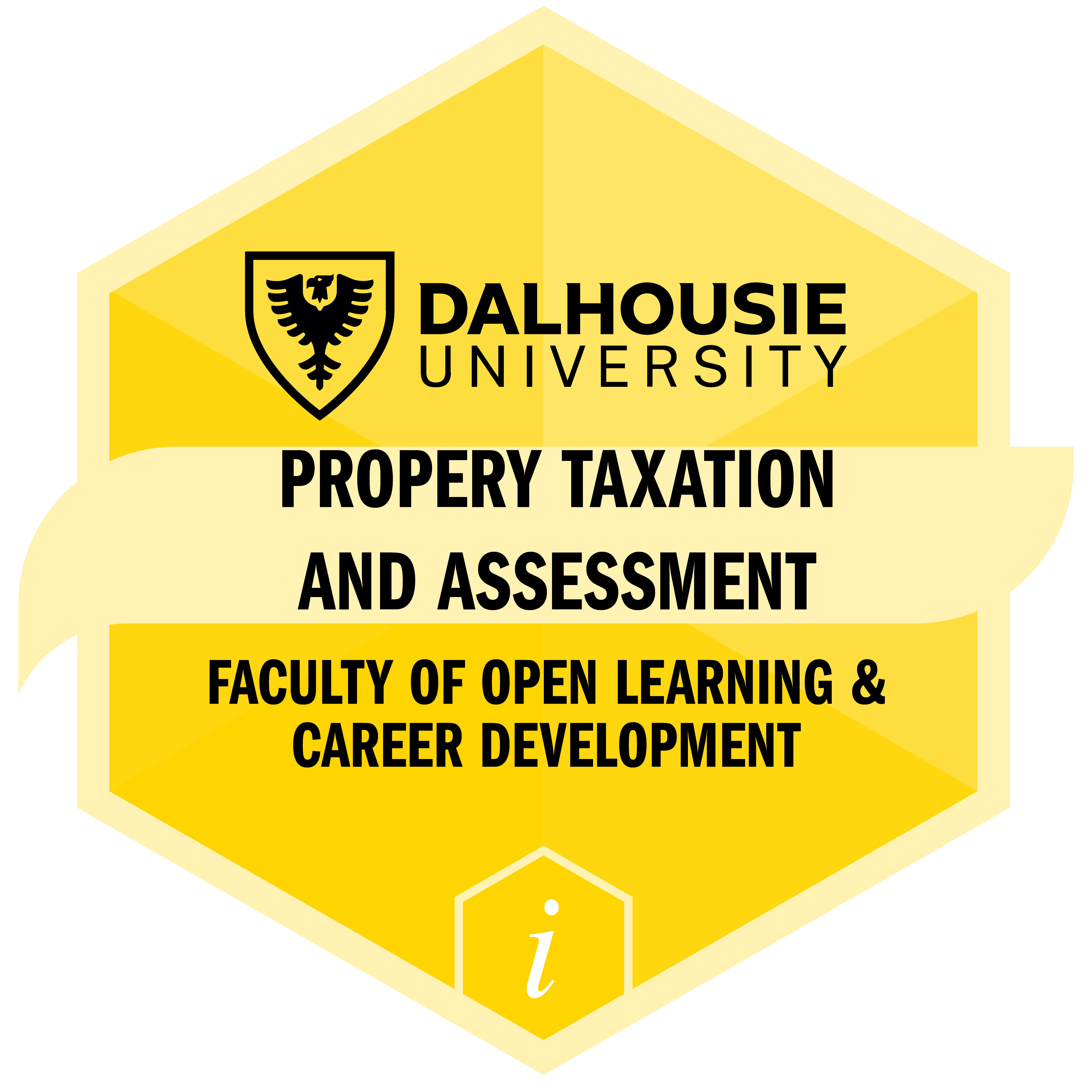Course Description
Property taxes are an important revenue source for municipalities. In this course you will explore policy issues and frameworks of analysis as they pertain to property tax. You will learn how to define and calculate property tax, set tax rates, and you will discuss measures, relief, and tax reform.
Course Outline
Module 1: The Role of Property Tax in Municipal Finance
Module 2: Property Assessments in Nova Scotia
Module 3: Calculation of Property Tax
Module 4: Property Tax Relief Strategies
Module 5: Administration of Property Tax
Module 6: Property Tax Reform in Nova Scotia
What You Will Learn
- Explain the important role of property tax in municipal finance in Canada
- Analyze the economic effects of property tax
- Describe what is included in the property tax base and what types of properties are excluded
- Explain how the assessment system works
- Describe how property tax rates can be set to achieve different objectives
- Explain the tax sale process
- Analyze property tax reform initiatives in Nova Scotia and evaluate their effectiveness
Microcredential

This course provides learners with the opportunity to earn a microcredential. A microcredential is evidence of a skill or competency that is employment related. Dalhousie microcredentials are developed in collaboration with employers, industries, and/or organizations that relate to the content. A microcredential can be displayed on social media pages, digital resumes, personal webpages, and in email signatures. To earn the microcredential in this course, learners will need to successfully complete a competency-based assessment.
Learn more about this microcredential here.
Notes
The Faculty of OLCD recommends an intermediate level of English language proficiency for the most effective learning and participation in our online and face-to-face courses. A list of minimum recommended scores on some common English tests can be found on our website. If you have questions about your English language proficiency and ability to succeed in this course, please contact openlearning@dal.ca.
Recommended For
- Public sector professionals
- Financial analysts
- Policy analysts
Applies Towards the Following Certificates
- Certificate in Local Government Finance : Required